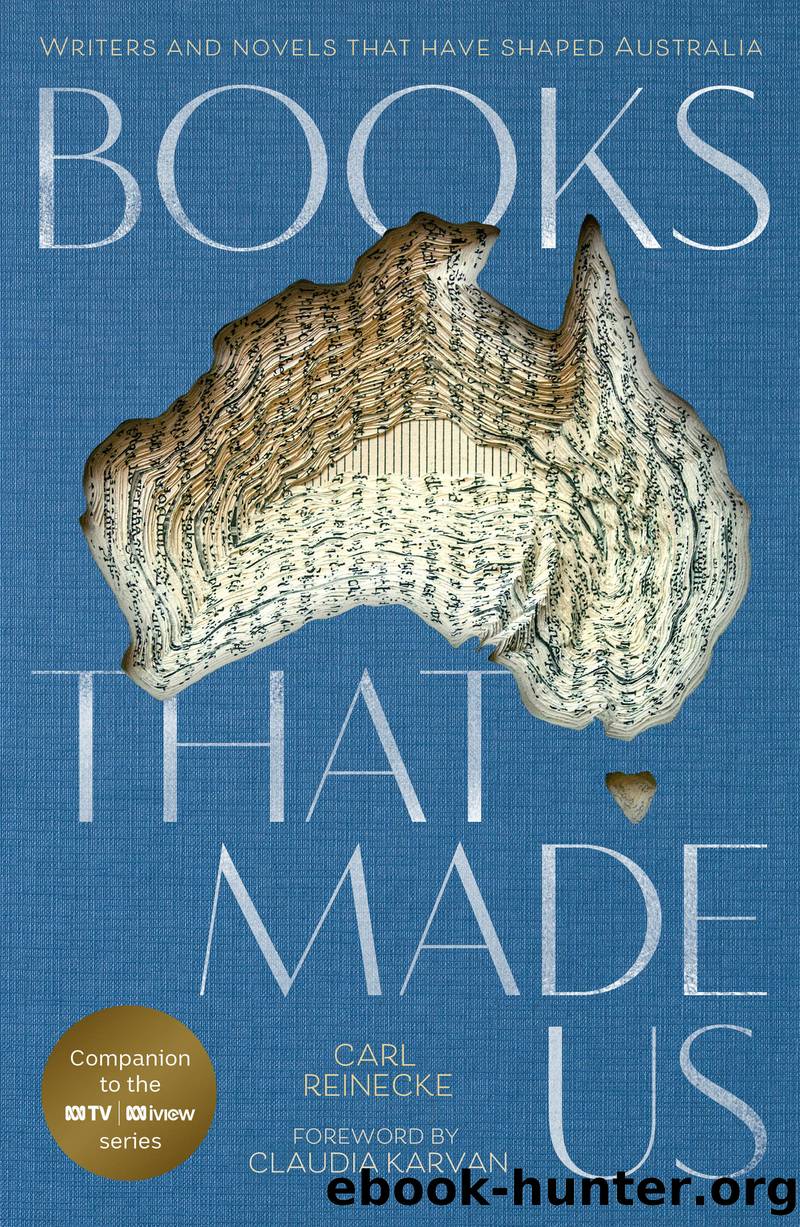Books that Made Us by Carl Reinecke

Author:Carl Reinecke
Language: eng
Format: epub
Publisher: ABC Books
Published: 2021-10-02T00:00:00+00:00
7
Something sinister
âOperation Oâ, the ceremonial opening of the Sydney Opera House in the October of 1973, was a staid, if sometimes raucous affair.1 With Queen Elizabeth launching the official opening ceremony, the organisers were desperate to avoid accusations that the event was too formal or elitist. Promising instead âa harbour carnivalâ, they assured the public that the event was âfor the people, not the starched shirtsâ.2 Two thousand yachts, warships and tugs sounded their sirens and horns in an exuberant âtwo-minute cockadoodle-dooâ, and the organisers released 1000 pigeons and 60,000 balloons, soon snatched away by 45-knot winds.3 The Queen, struggling against the breeze, delivered her speech in the buildingâs forecourt; she described the opening as proof of the âprogressionâ of Australian culture âfrom the mud hut to soaring opera houseâ.4
The opening, in the words of the expatriate art critic Robert Hughes, was a cultural watershed for Australia.5 But there were two conspicuous absences from this long-delayed ceremony. The first was the buildingâs original architect, the much-maligned Dane Jorn Utzon. The other, having died in 1959, was Joseph Cahill, the New South Wales Labor premier who had commissioned and approved the building seventeen years earlier. Cahill was one of the first to argue that the Opera House would âdisplay the flowering of Australian cultureâ and prove âa monument to democratic nationhoodâ.6 Cahillâs cultural ambitions lived on and were shared in part by the new, transformative Labor prime minister Gough Whitlam.
When he was elected in November 1972 after twenty-three years of conservative rule, Whitlam was keen to bring about a vast political and policy change as quickly as possible. It was to be the âend of the ice ageâ, according to many commentators. Eager to meet the needs of âmodern societyâ, Whitlam and his government wasted little time; the rapid changes of Whitlamâs first days in office continued unabated for the next three years. He set himself the task of removing âanachronisticâ holdovers and embarked on a program of reform to remake Australian laws, society, politics and culture.7
In line with its modernising ambitions, the Whitlam government positioned itself as an enthusiastic advocate of modernist art. One of its most famous decisions was the purchase of Jackson Pollockâs abstract expressionist painting Number 11, 1952, known as Blue Poles, with Whitlam insisting its $1.3 million price be made public.8 It was immediately controversial. Some were outraged by the cost, along with the âdoubtful valueâ of abstract expressionism, while others defended the decision, saying it was âthe greatest thing that has happened to art in Australiaâ. Criticised as an example of the way Whitlamâs government âfoisted its actions on an unprepared publicâ, a section of local artists were particularly hostile, arguing the government could have instead spent the money on paintings by Australian artists.9 To Donald Horne the controversy around Blue Poles suggested that Whitlamâs ambitions werenât so much nationalist as âcatching up with overseasâ, satisfying âan anxious itch that somehow Australia has fallen shamefully behind other placesâ.10
Australian literature was no exception to these rapid modernising reforms.
Download
This site does not store any files on its server. We only index and link to content provided by other sites. Please contact the content providers to delete copyright contents if any and email us, we'll remove relevant links or contents immediately.
The Power of Myth by Joseph Campbell & Bill Moyers(1068)
A Social History of the Media by Peter Burke & Peter Burke(988)
Half Moon Bay by Jonathan Kellerman & Jesse Kellerman(987)
Inseparable by Emma Donoghue(983)
The Nets of Modernism: Henry James, Virginia Woolf, James Joyce, and Sigmund Freud by Maud Ellmann(913)
The Spike by Mark Humphries;(812)
The Complete Correspondence 1928-1940 by Theodor W. Adorno & Walter Benjamin(789)
A Theory of Narrative Drawing by Simon Grennan(783)
Culture by Terry Eagleton(776)
Ideology by Eagleton Terry;(743)
World Philology by(719)
Farnsworth's Classical English Rhetoric by Ward Farnsworth(715)
Game of Thrones and Philosophy by William Irwin(712)
Bodies from the Library 3 by Tony Medawar(709)
High Albania by M. Edith Durham(705)
Adam Smith by Jonathan Conlin(695)
A Reader’s Companion to J. D. Salinger’s The Catcher in the Rye by Peter Beidler(688)
Monkey King by Wu Cheng'en(654)
Comic Genius: Portraits of Funny People by(652)
